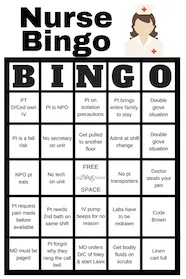Psychology is an important field that covers both the mental and behavioral aspects of a person. It can be applied to any profession, but few areas rely on it as much as nursing.
Nurses are often in charge of providing emotional support for patients, so understanding how psychology applies to them is imperative for their success. It can be argued that every human being is a psychologist.
When nurses interact with patients from diverse backgrounds, they provide better care. A psychology degree can give you the tools you need as a healthcare professional to provide the best care to patients and accurately identify mental health issues.
This article will discuss some critical areas where psychology impacts nursing and why it is essential for nurses to understand more about this topic.
Why Psychology Is Important in Nursing?
Nursing is a profession with many different specialties. To be successful in nursing, one must understand psychology and its role in the job.
Clinical psychologists are often critical members of the healthcare team. They help patients develop coping skills for mental health issues such as anxiety or depression and provide education on behavioral interventions for chronic pain management.
Clinical psychologists also help patients to understand the impact of mental illness on their daily lives. In nursing, clinical psychology is essential because it teaches nurses how to change behaviors to better assist a patient with their needs and desires.
Nursing has many different aspects, including those working in schools as teachers’ aides for special education students and psychiatric-mental health nurse practitioners who work primarily with children, adolescents, adults, and seniors suffering from physical or emotional problems that interfere with their ability to function day-to-day.
Applications of Psychology:
Having psychological knowledge also makes nurses capable of convincing patients to follow their instructions, which results in the patients taking a positive role in their wellness.
Studies show that nurses with more psychological knowledge can better communicate and understand patients’ mental health needs, encouraging them to take responsibility for their wellness.
Psychological understanding can also lead to a greater sense of compassion in the workplace, which positively impacts patient care.
Nurses who have studied psychology will be better equipped to recognize when something is wrong with a patient as they listen closely to what the person says and how he or she expresses themselves verbally and nonverbally.
They’ll know whether someone’s complaints about pain are justified by checking if there’s physical evidence such as bruising or swelling; whether certain behaviors indicate depression, anxiety disorders, bipolar disorder, or schizophrenia.
Psychology-Related Nursing Careers
All the nurses can get benefits from the application of psychology in nursing their careers. It can be applied in every nursing profession and at any level, from entry-level to executive leadership positions.
Psychologists are an excellent asset for nurses because they provide insight into patients’ minds, which will lead them to understand their needs better and offer more effective care.
Nurses with a background in psychology also have the potentials to work as consultants or case managers while taking advantage of their skills by providing counseling services or psychological evaluations on behalf of physicians.”
The practice of psychodynamic therapy is often misunderstood and underestimated. Still, it has been shown that this type of treatment helps people get over mental illnesses like depression, anxiety disorders, and post-traumatic stress disorder.
Psychiatric Nursing: Psychiatric-mental health nurses (PMHN)
These nurses address patients with mental disorders, including depression. They provide counseling as well as medical treatments such as prescribing medication or electroconvulsive therapy (ECT).
A PMHN works closely with psychologists to develop treatment plans and monitor patient progress. In some cases, they also function in the role of a social worker to help patients get access to resources like housing assistance and vocational rehabilitation services.
Hospice Nursing
It is an essential and delicate service to provide end-of-life care. Clinical psychologists can help address emotional needs like fear or confusion that may arise as a patient approaches death.
They also provide bereavement counseling after a patient has passed away, helping family members cope with their loss, so they don’t experience complicated grief reactions such as depression or substance abuse problems.
The field of Hospice Nursing is growing, but the demand for well-trained nurses still outstrips supply.
Home Care Nursing
Like hospice nursing, home care nursing involves a lot of work. This is because most patients are elderly and require multiple services. One of the main functions that home care nurses provide for their clients.
Whether it be in a hospital, private residence, or nursing facility teaches self-care skills like how to bathe, dress and use proper hygiene products. Home care nurses also help with daily activities such as preparing meals, doing light housekeeping chores, and managing finances.
Nurses who choose this specialty can expect long hours on duty per shift – sometimes 12+ depending on patient needs—less time off than other specialties due to rotating shifts.
School Nursing
Working with school children can be very challenging and rewarding at the same time. Children are often unpredictable, which makes it challenging to plan for a day in advance. School nurses need to have an understanding of kids’ psychology.
They know that while children may behave well when they are with adults or other children, there is no guarantee that one will maintain good behavior all day long without something happening to upset them.
And since many issues can arise during lunchtime, recess, or after school hours (which are not supervised by an adult), identifying potential problems before they happen helps avoid conflict between teachers and students later on.
Faith Community Nursing
It is also known as church or parish nursing and is rooted in the Christian faith. The leading role of a church nurse or parish nurse is to provide spiritual care and comfort for patients who are dying. Church nurses may visit terminally ill people at home, providing them with physical care such as bathing, dressing wounds, changing bed linens, assisting those using catheters or colostomy bags.
They might also teach patients how to cope with their illnesses and advise on managing pain through medication dosages and other methods.
Bible study groups can be helpful, too; they help participants develop coping strategies by analyzing scriptural passages that deal with death.
Scope of Psychology in Nursing
Psychology is the process of mental and behavioral processes. It has been a part of nursing for many decades, and it is an indispensable tool in the diagnosis and treatment process.
Psychology plays a significant role in assessing, diagnosing, planning rehabilitative care for patients with mental disorders who are hospitalized and those who can be treated on an ambulatory basis.
The American Nurses Association defines psychology as “the scientific study of behavior and mental processes.” In short, psychology helps nurses understand how people behave to provide better healthcare services.
Studies indicate that psychologists have played significant roles in improving patient outcomes because they can assess their needs appropriately before proposing any form of therapy or rehabilitation plan; this includes factors such as age, gender, etcetera.
Conclusion:
Psychology has a significant impact on the nursing field. Nurses must have an understanding of psychology to treat patients better and help them with their mental health.
As a high-quality resource for interested students, we aim to provide step-by-step, fully explained solutions to problems. So we hope now you have understood that Why psychology is important in nursing.
More Resources for Psychology in Nursing:
- Psych Nurse Job Overview
- Hospice Nurse: Is It For You?
- Nursing Home Visit – Tips & What To Expect
- What Is a Psychiatric Mental Health Nurse Practitioner?
Download Nurse Bingo Today!

Liven up any shift with a fun game of bingo. See who can fill a row first!
Fill a whole card and lose grip with reality.
Your privacy is protected. We will never spam you.



